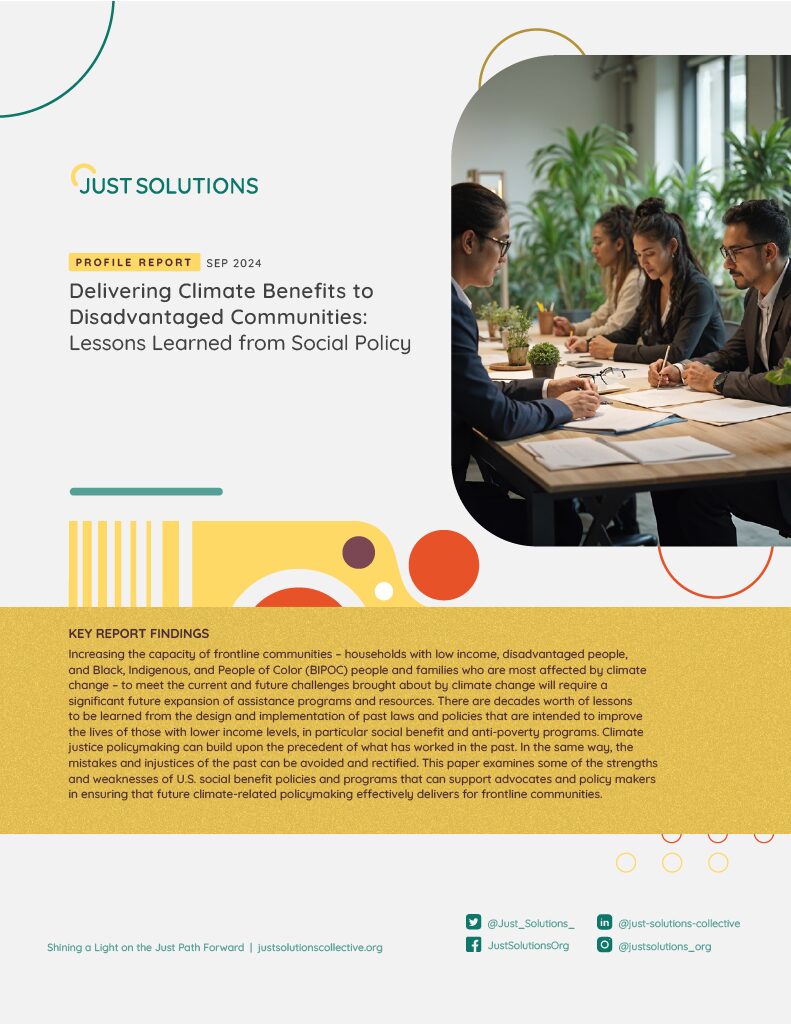Increasing the capacity of frontline communities – households with low income and families who are most affected by climate change – to meet the current and future challenges brought about by climate change will require a significant future expansion of assistance programs and resources. There are decades worth of lessons to be learned from the design and implementation of past laws and policies that are intended to improve the lives of those with lower income levels, in particular social benefit and anti-poverty programs. Climate justice policymaking can build upon the precedent of what has worked in the past. In the same way, the mistakes and injustices of the past can be avoided and rectified. This paper examines some of the strengths and weaknesses of U.S. social benefit policies and programs that can support advocates and policymakers in ensuring that future climate-related policymaking effectively delivers for frontline communities.
Delivering Climate Benefits to Disadvantaged Communities: Lessons Learned from Social Policy
